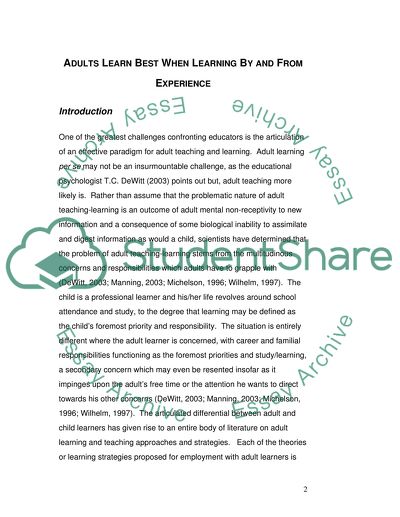Cite this document
(“Adults learn best when learning by and from experience Essay”, n.d.)
Adults learn best when learning by and from experience Essay. Retrieved from https://studentshare.org/education/1523440-adults-learn-best-when-learning-by-and-from-experience
Adults learn best when learning by and from experience Essay. Retrieved from https://studentshare.org/education/1523440-adults-learn-best-when-learning-by-and-from-experience
(Adults Learn Best When Learning by and from Experience Essay)
Adults Learn Best When Learning by and from Experience Essay. https://studentshare.org/education/1523440-adults-learn-best-when-learning-by-and-from-experience.
Adults Learn Best When Learning by and from Experience Essay. https://studentshare.org/education/1523440-adults-learn-best-when-learning-by-and-from-experience.
“Adults Learn Best When Learning by and from Experience Essay”, n.d. https://studentshare.org/education/1523440-adults-learn-best-when-learning-by-and-from-experience.


